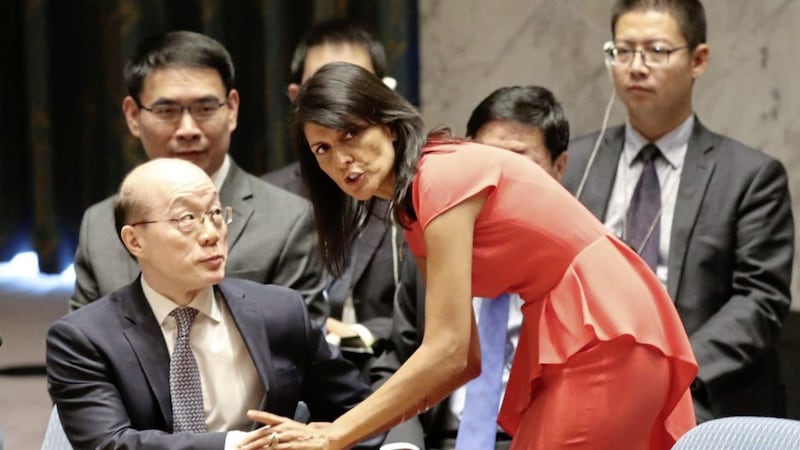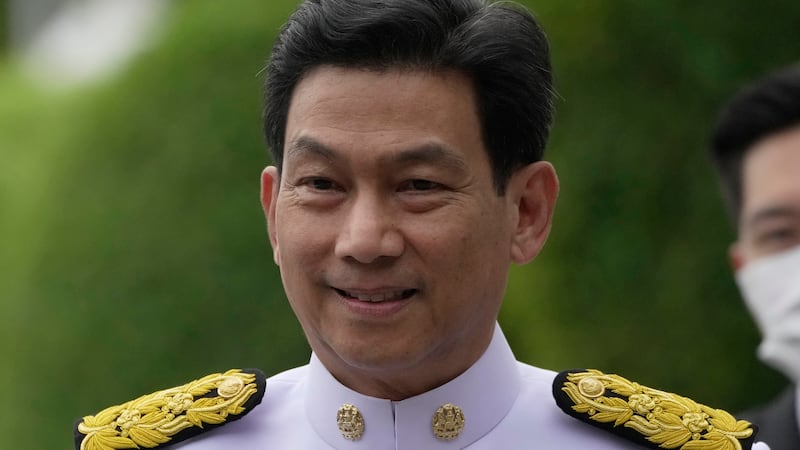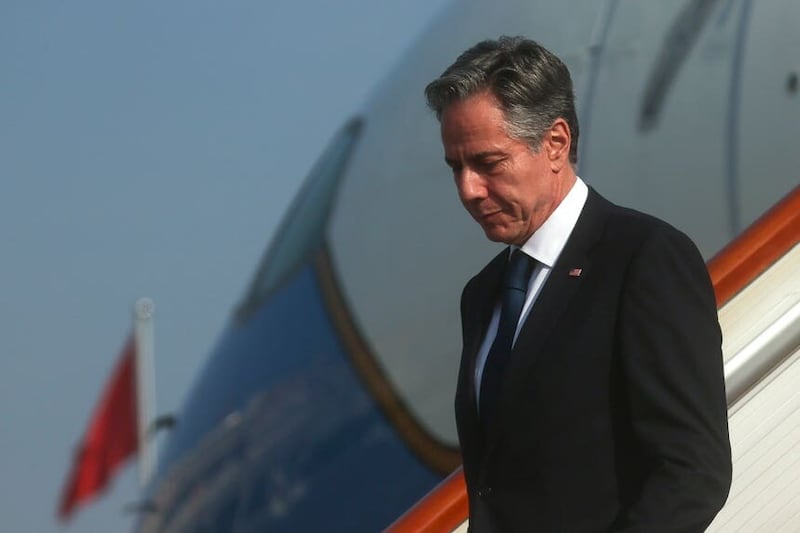Chinese foreign minister Wang Yi has urged North Korea to abide by UN resolutions and stop provoking "the international community's goodwill" with missile launches and nuclear tests.
Mr Wang spoke to reporters in Manila after meeting North Korean Foreign Minister Ri Yong Ho on the sidelines of a regional meeting, hours after the UN Security Council unanimously approved tough new sanctions to punish Pyongyang for its escalating nuclear and missile programmes.
Mr Wang said the two had an intensive conversation during which China urged North Korea to maintain calm.
He said he told Mr Ri "do not violate the UN decision or provoke the international community's goodwill by conducting missile launches or nuclear tests".
Mr Wang also urged the US and South Korea "to stop increasing tensions" and said that all sides should return to negotiations.
In an earlier statement on Sunday, Mr Wang appealed to other governments to resume the six-nation talks that involve the North, the United States, Russia, Japan and South Korea, as well as Beijing.
"The aim is to bring the peninsula nuclear issue back to the negotiating table and seek a solution through negotiations until the denuclearisation of the peninsula and the stability of the peninsula are achieved," Mr Wang said.
North Korea pulled out of the talks in 2009 to protest against international condemnation of a long-range rocket launch. Last month, it test-launched two intercontinental ballistic missiles capable of reaching the US mainland.
US secretary of state Rex Tillerson has said Washington wants eventually to talk to North Korea, but thinks discussions would not be productive if Pyongyang comes with the intention of maintaining its nuclear weapons.
Mr Wang's statement repeated Beijing's proposal for a "double suspension," or a halt to North Korean nuclear development and to joint US-South Korean military exercises. It said that was the most reasonable way to ease tensions and create conditions for new talks.








